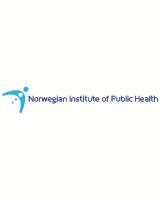X-linked recessive diseases are severe hereditary diseases that are manifested solely in males. If the mother is a carrier of an X-linked recessive disease, she can either have a healthy girl, a healthy girl who is a carrier like the mother, a healthy boy, or a boy that becomes ill with the X-linked disease. Current practice in Norway is that all pregnant women at increased risk of having a child with an X-linked recessive disease, are eligible for an invasive test (chorionic villus sampling or amniocentesis), without any determination of the fetal sex beforehand. Annually, 40-60 invasive tests are performed in this group of pregnant women in Norway.
In non-invasive prenatal testing (NIPT), a blood sample of the pregnant woman is used to identify fetal sex. The method is based on the analysis of cell-free fetal DNA found in maternal blood early in pregnancy. The purpose of using NIPT for fetal sex determination is to avoid unnecessary invasive testing of pregnant women who carry a female fetus.
We have summarized research findings on NIPT's diagnostic accuracy for fetal sex determination, as well as discussed clinical, health economic and ethical consequences related to NIPT used for fetal sex determination. Based on the findings:
- Diagnostic accuracy of NIPT for fetal sex determination is very high.
- Maternal blood samples taken in gestational week 7 or later provide more reliable results than blood samples taken before week 7.
- Assuming 50 pregnant women are tested every year, 21 of these will avoid invasive testing.
- Introduction of a program where NIPT is used in determination of fetal sex, will increase the annual total health care cost expendings by 197,000 Norwegian kroner.
Preliminary version: HTML in process
- NLM CatalogRelated NLM Catalog Entries
- Review Determination of Fetal Rhesus D Status from Maternal Plasma of Rhesus Negative Women[ 2014]Review Determination of Fetal Rhesus D Status from Maternal Plasma of Rhesus Negative WomenArentz-Hansen H, Brurberg KG, Kvamme MK, Stoinska-Schneider A, Hofmann B, Ormstad SS, Fure B. 2014 Dec
- Review Non-Invasive Prenatal Test (NIPT) for Identification of Trisomy 21, 18 and 13[ 2016]Review Non-Invasive Prenatal Test (NIPT) for Identification of Trisomy 21, 18 and 13Juvet LK, Ormstad SS, Stoinska‐Schneider A, Solberg B, Arentz‐Hansen H, Kvamme MK, Fure B. 2016 Dec 16
- Prenatal screening for fetal aneuploidy in singleton pregnancies.[J Obstet Gynaecol Can. 2011]Prenatal screening for fetal aneuploidy in singleton pregnancies.Chitayat D, Langlois S, Douglas Wilson R, SOGC GENETICS COMMITTEE, CCMG PRENATAL DIAGNOSIS COMMITTEE. J Obstet Gynaecol Can. 2011 Jul; 33(7):736-750.
- Review [Non invasive prenatal test (NIPT) in maternal blood by parallel massive sequencing. Initial experience in Mexican women and literature review].[Ginecol Obstet Mex. 2015]Review [Non invasive prenatal test (NIPT) in maternal blood by parallel massive sequencing. Initial experience in Mexican women and literature review].Hernández-Gómez M, Ramirez-Arroyo E, Meléndez-Hernández R, Garduño-Zaraza LM, Mayén-Molina DG. Ginecol Obstet Mex. 2015 May; 83(5):277-88.
- Chorionic Villus Sampling, Early Amniocentesis, and Termination of Pregnancy Without Diagnostic Testing: Comparison of Fetal Risk Following Positive Non-invasive Prenatal Testing.[J Obstet Gynaecol Can. 2016]Chorionic Villus Sampling, Early Amniocentesis, and Termination of Pregnancy Without Diagnostic Testing: Comparison of Fetal Risk Following Positive Non-invasive Prenatal Testing.Zelig CM, Knutzen DM, Ennen CS, Dolinsky BM, Napolitano PG. J Obstet Gynaecol Can. 2016 May; 38(5):441-445.e2. Epub 2016 Apr 23.
- Non‐Invasive Prenatal Testing (NIPT) for Fetal Sex Determination. Health Technol...Non‐Invasive Prenatal Testing (NIPT) for Fetal Sex Determination. Health Technology Assessment
Your browsing activity is empty.
Activity recording is turned off.
See more...
